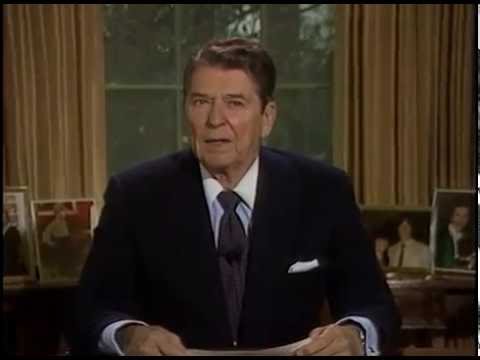Authors:
Historic Era: Era 10: Contemporary United States (1968 to the present)
Historic Theme:
Subject:
February/March 2021 | Volume 66, Issue 2


Authors:
Historic Era: Era 10: Contemporary United States (1968 to the present)
Historic Theme:
Subject:
February/March 2021 | Volume 66, Issue 2

A modest man in his habits and attitudes, Ronald Reagan did not succumb to greed himself. In fact, he conducted himself in a remarkably simple, often abstemious, manner as president. Reagan did not profit from the presidency, and he sought — with the notable exception of the illegal Iran-Contra maneuvers — to act within the constitutional expectations of a public servant accountable to the other branches of government and, ultimately, to the American people.
Reagan's dislike of government regulation, however, enabled a pervasive diversion from strict ethical rules of conduct within his administration. There were fewer daily checks from the Oval Office on self-interested behavior among various aides. The President trusted his loyalists, and he empowered them to act with little oversight. Although he followed a strong personal ethical code, Reagan did not articulate one for those who worked around him.
Reagan's negligence in promoting ethics among his subordinates made his administration the most scandal-ridden since Watergate. At times, it appeared to replay some of that same history, with televised congressional investigatory hearings and serious talk of impeachment. In contrast to Nixon, however, Reagan was generally a law-abiding president. Yet he did not punish (and he sometimes rewarded) those around him who flagrantly broke the law. As a result, numerous prominent Reagan administration officials were convicted of crimes, some went to jail, and many ended their careers in disrepute. Independent Counsel investigations and prosecutions multiplied throughout his term in office.
The gravest irony of the Reagan administration was that its aversion to big government swelled the coffers of those privileged officials who controlled government. Managerial negligence and deregulation encouraged corruption and lawbreaking. Anti-communist zeal powered unconstitutional militarism. The government did not diminish in size during Reagan's presidency, but instead grew larger than before. And it became less tethered to the law.
The Iran-Contra Affair
The biggest scandal of the Reagan years, and the most significant constitutional crisis since Watergate, was the Iran-Contra affair. In the spring and summer of 1987, millions of Americans watched forty-one days of televised joint hearings from the House Select Committee to Investigate Covert Arms Transactions with Iran and from the Senate Select Committee on Secret Military Assistance to Iran and the Nicaraguan Opposition. The “Iran-Contra Hearings'', as they were called, had all the elements of made-for-television drama: powerful elected representatives, eloquent defenders of constitutional checks and balances, zealous anti-communists, and attractive supporting actors.
The tangled web of illegal activities that connected Washington, Israel, Saudi Arabia, Iran, Panama, Honduras, Nicaragua, and other countries was often hard follow, but the plotline was evident: high-level figures in the Reagan administration, perhaps including the President, had broken numerous laws to pursue deeply held foreign policy goals.